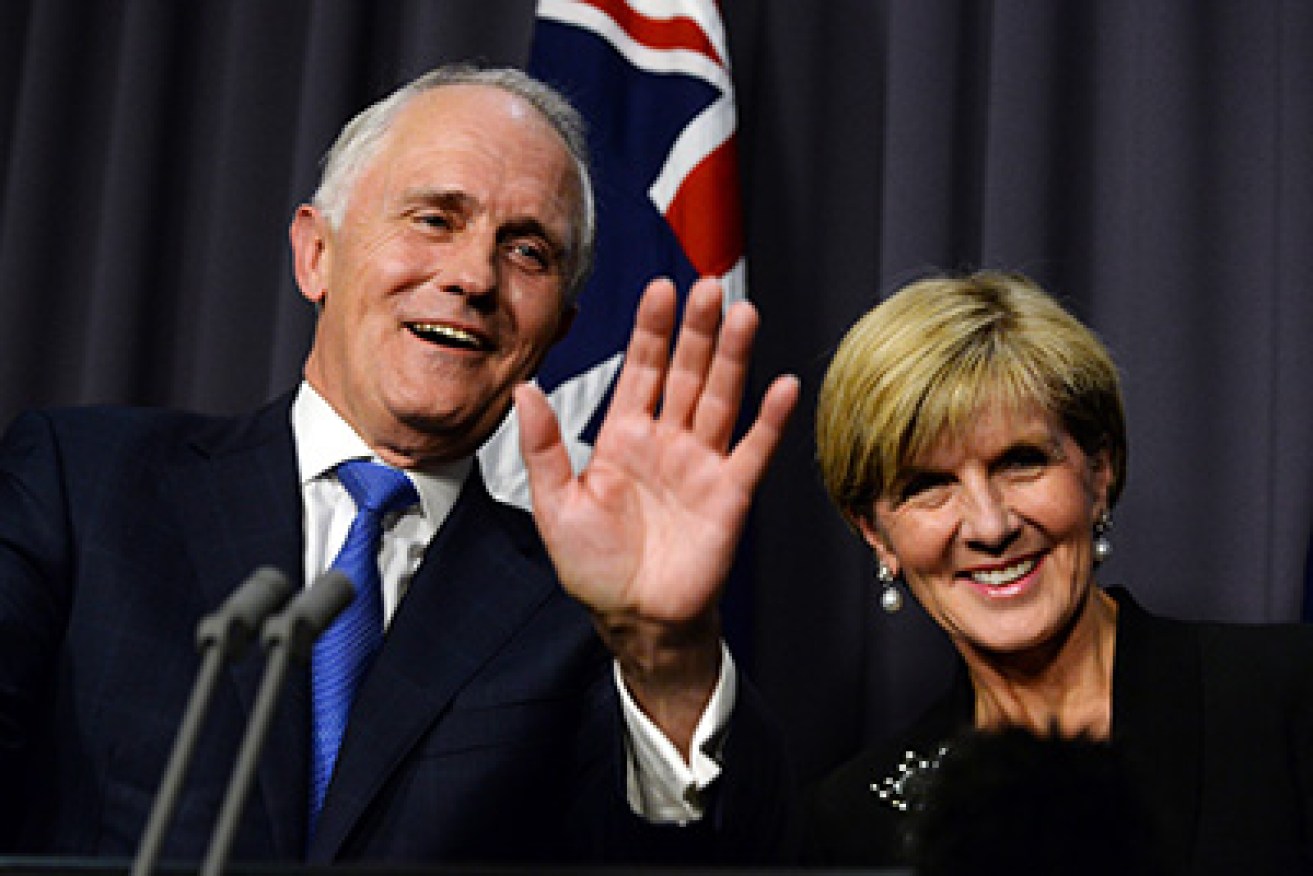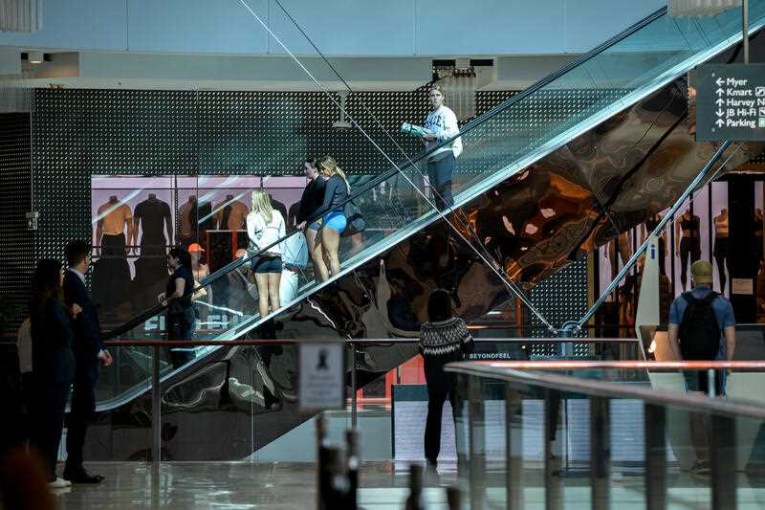The Liberals and Nationals are yet to prove they take women seriously


Still work to do: Malcolm Turnbull and Julie Bishop. Photo: AAP
In some sort of cosmic joke, the global celebration of International Women’s Day took place this week following one of the most unedifying periods ever for women associated with the Liberal and Nationals parties.
As you would expect, this synchronicity produced some hand-wringing over the Turnbull government’s ‘women problem’.
Liberal Deputy leader Julie Bishop and the Minister for Women, Kelly O’Dwyer, stoically performed their public duties in recognition of women during the week’s celebrations.
But both knew the greatest barriers to the advancement of women in Australia are the people who sit with them in Cabinet and the gender bias that lurks within the culture of both the Liberal and Nationals parties.
Both these ugly elements have been displayed in recent weeks.
A woman who confidentially lodged a sexual harassment complaint against the Nationals leader at the time, Barnaby Joyce, was outed by elements within the WA Nationals for political reasons.
A former Liberal Minister for Women and current cabinet minister, Michaelia Cash, threatened to drag through the mud the names of all the women working in Opposition leader Bill Shorten’s office to fend off a difficult line of questioning.

Michaelia Cash has been criticised for her outburst in Senate Estimates. Photo: AAP
And of course the man of the hour, Barnaby Joyce, publicly threw his new partner under a bus by divulging to the media that he didn’t know if her baby was his.
This striking lack of respect for women has been evident in the Coalition over the longer term too.
Last year we saw Australia’s first female Defence Minister, Marise Payne, anonymously undermined in the media by colleagues angling for her job, and a move by a group of male Liberal Party members – unhappy with the government’s changes to superannuation perks for the wealthy – to draft conservative commentator Peta Credlin into Kelly O’Dwyer’s seat.
The sick irony of that attempt is that Ms Credlin, while serving as chief of staff to prime minister Tony Abbott, reportedly kept Ms O’Dwyer and other competent women from being promoted to cabinet.
According to Mr Abbott at the time and as Ms Credlin implied in an article this week, those women did not merit such a promotion – although men with demonstrably less merit still made the cut.
It was also during this time that Mr Abbott appointed himself as the Minister for Women.
Mr Abbott’s successor, Malcolm Turnbull, at least addressed those flaws by appointing a record number (for a Coalition government) of women to Cabinet and appointing a cabinet minister who also happens to be a young woman with children as the Minister for Women.
But there continues to be a cultural bias running deep within the Coalition parties that disrespects women. The events of the past few weeks demonstrate that, as do the respective party machines’ continued resistance to pre-selecting women for safe Coalition seats.
This bias is also made obvious by the absence of any suggestion that Julie Bishop could ever become Liberal leader.
Despite opinion polls rating the Minister for Foreign Affairs and Deputy Liberal leader ahead of all other leadership contenders (except the current PM), Ms Bishop has never been seriously discussed by the media as Mr Turnbull’s potential successor.
This is chiefly because Ms Bishop’s colleagues don’t raise her as a prospective leader when talking to the media. The reasons for this are not straightforward – the factors that count against Ms Bishop include her being a West Australian (Liberal leaders usually come from NSW or Victoria), and a moderate.
It was not by coincidence that Ms Bishop recently missed out on being the acting prime minister while Mr Turnbull was overseas and Mr Joyce was ‘on leave’.
Ms Bishop publicly stated she would be happy to return early from overseas to take on the role, but instead the next in line – Mathias Cormann – was tapped to stand in for the PM.
This reluctance to countenance a female leader in the Coalition (even on a temporary basis) also extended to the Nationals in recent weeks, when jostling commenced for the junior party’s leadership following Barnaby Joyce’s resignation announcement.

Not a contender: Bridget McKenzie with for Deputy PM Barnaby Joyce. Photo: AAP
Granted, Nationals’ deputy leader Bridget McKenzie sits in the Senate, which is not the usual parliamentary chamber for the Nationals leader or the Deputy PM. But there is nothing in the Constitution or elsewhere that would have prevented her from becoming leader. As it turns out, they wanted a man in the role instead.
In the corporate world, another sphere that has long had a women problem, it’s been discovered that the best way to change an organisation’s bias against women is to appoint women at the highest levels.
That’s because women need to be in positions of power to make the changes that will identify and eliminate bias.
This is happening in the Labor Party (which is imperfect but at least trying), and it should be happening in the Coalition parties too.
Real change can only start at the top. It may well be that the easiest and quickest way to solve the Turnbull Government’s women problem is to make it the Bishop-McKenzie Government instead.








